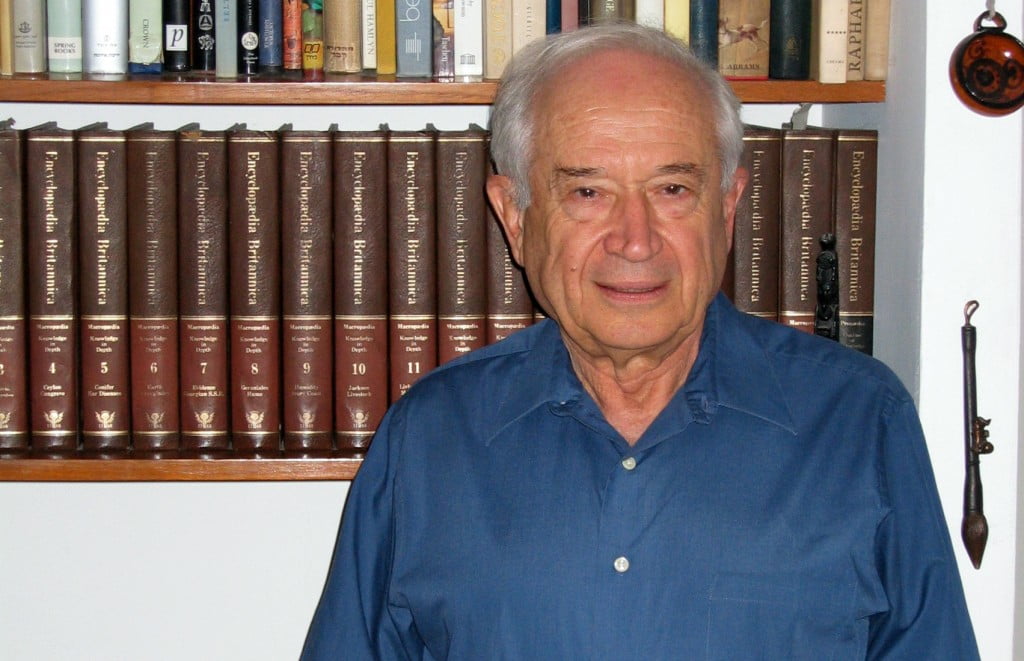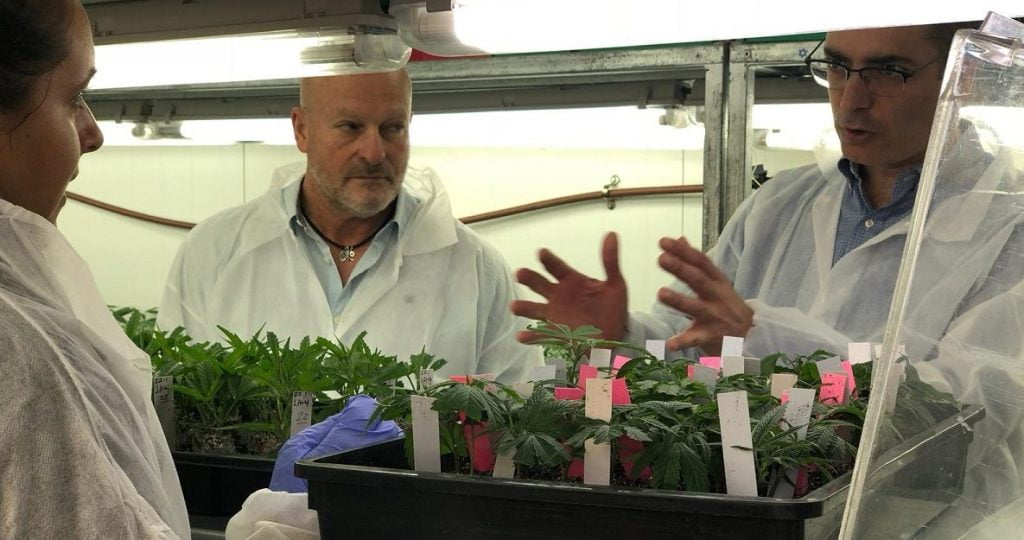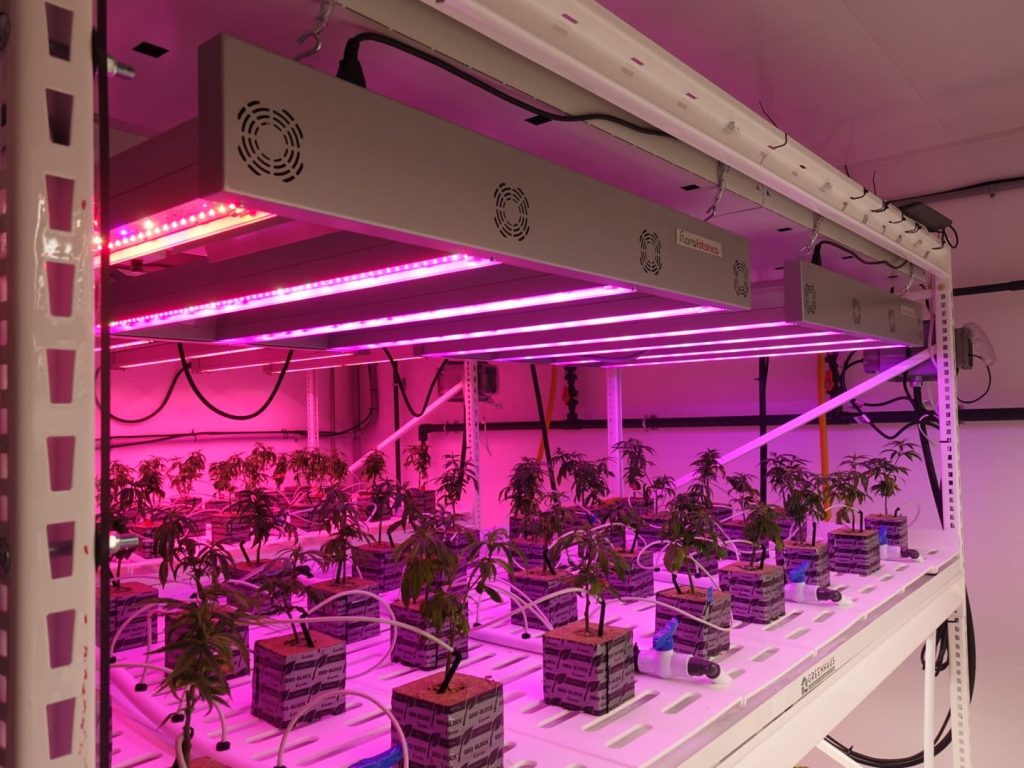Global cannabis companies are ready to welcome 2020, hoping new regulations will pave the way for more canna-tech products and new marijuana businesses. Israeli canna-players, specifically, are marching into the new year with peak status in medical cannabis research.
Israel continues to be the go-to for cannabis’ potential benefits. The country is an established world leader in medical cannabis R&D, thanks to the pioneering work of Hebrew University of Jerusalem Professor Raphael Mechoulam and other scientists in Israel.
SEE ALSO: Blue, White, And Green? How Israel Is Leading The Global Cannabis Revolution
In 1964, the world-famous organic chemist was the first researcher to identify cannabis’ THC compound, the chemical known for causing a “high,” and thus paved the way for scientific research on cannabis and its use in modern medicine.

In September, at CannMed 2019, Mechoulam announced a new innovation: a family of synthetic, stable cannabinoid acid molecules that could potentially offer therapeutic effects.
“This is exciting and unprecedented research. We have taken the unstable molecules of the cannabis plant and synthesized them to provide a stable, consistent basis for researching new therapies across a wide range of medical needs – from CNS disorders to inflammation and many more,” Mechoulam, who is also head of research and chemistry at Los Angeles-based Israeli-founded cannabinoid research company EPM, told the conference attendees.
“In addition, we have provided several delivery mechanisms including tablets, topical applications, and others to facilitate several approaches. Our work is a catalyst for the development of potential new therapies from a source long thought to have huge potential,” Mechoulam added
EPM CEO Reshef Swisa said this development means that “for the first time ever, pharmaceutical companies will have access to a wide variety of patent-protected, stable cannabinoid molecules synthesized to provide stability and consistency for use in developing new medicines, with numerous potential therapeutic applications.”
That Mechoulam, widely considered the founder of cannabis-focused research, continues to headline cannabis research news is not surprising to anyone keeping tabs on the Israeli scene.

“There’s a lot of misinformation out there, plenty of ‘street wisdom’ that isn’t based on any reliable evidence. But when it comes to research, Israel is one of the front runners — and has been since the 1960s,” says Elana Goldberg, Chief Content Officer at The Cannigma, an Israel-based news and content source for cannabis research and education.
“Mechoulam’s work is world-renowned in the industry, and cutting edge research projects at the Technion and Hebrew University are looking into how cannabinoids interact with cancer cells, among other conditions. In my experience, experts around the world are all watching what’s going on in Israel,” Goldberg tells NoCamels.
Yona Cymerman, co-founder and COO of Can Innovations, an Israel-focused cannabis innovation hub, explains that currently there are “tens of cannabis-based clinical trials taking place in Israel, more than any other country in the world.”
Cymerman believes that “in 2020, we will begin to see some results from clinical trials, which will encourage the big pharma companies to enter the market and will pivot the entire industry to more science-backed medications and safe, stable, science-based cannabis products for everyday usage and treatment.”
Another project underway includes a collaborative cannabidiol study by scientists from Hadassah Hebrew University Hospital and Research Center with Baltimore-based Greater Cannabis Company, a biopharmaceutical company focused on the development and commercialization of innovative cannabinoid delivery systems.
“We have identified and partnered with the most experienced cannabis researchers in the world who were studying the effects of CBD years before it became a popular product,” Aitan Zacharin, CEO of the Greater Cannabis Company, said in a press statement. “With the knowledge, we have that our delivery platform is an incredibly effective way of administering cannabinoids, we knew that we needed the top teams in the industry to work on developing and executing our study protocols.”
While Israel looks good for the global community, at home, there is a medical cannabis crisis of sorts as national reforms kicked in, affecting the supply for local patients.

“Looking back at 2019, it has been really tough; patient access didn’t move forward. Patients ended up suing the government. No steps forward, no steps back. Which is worse than what we used to have in two steps forward, one step back. So, we hope there will be immense changes in 2020. We’re starting to see better transparency from the governmental offices. Things have to get better because we’re not taking care of our patients,” says Saul Kaye, CEO and founder of iCAN.
In mid-November, iCAN: Israel-Cannabis, cannabis technology incubator and owner of the CannaTech event platform, announced the formation of Psychedeli-Tech (PsyTech) — a new conference and discovery platform for psychedelic medicine.
The first PsyTech conference will take place in Tel Aviv on March 29-30, 2020. “People around the world are incredibly excited. Some of the leading scientists are coming out to speak [at the event], so we really hope to shine a massive light on this new therapeutic area,” says Kaye.

“Millions of people around the world suffer from depression, PTSD, anxiety, addiction, and other debilitating chronic conditions, and there is growing evidence that psychedelics may have the potential to provide a better treatment path for many of these patients. I am thrilled that iCAN: Israel-Cannabis has formed PsyTech to build an ecosystem that will drive scientific discovery forward,” Ronnie Eshel, Director of Life Sciences at iCAN, said in a press statement.
Moreover, Kaye says investors are keen on what’s the next big trend. “Psychedelic is definitely a very interesting topic around Silicon Valley right now.”
Sign up for our free weekly newsletter
SubscribeBut Israel is not just headlining the medical cannabis arena. Its canna-tech and cannabis companies are also pulling in international interest. Of course, the local canna-business scene – although geographically far away – is connected to its global counterparts.
This year was a rocky one for the cannabis marketplace in North America. On the one hand, there is the vaping-related health crisis. But there are also new regulations and bills being passed including to advance legislation for banks to provide services to cannabis companies in states where it is legal, and legislation to decriminalize cannabis.
“Taking into consideration the vaping crisis, banking issues, and sluggish sales, there’s no denying that cannabis companies just suffered through a rough 2019, but it’s important to note that this happens in emerging markets,” says Oren Todoros, CEO and co-founder of branding firm CannaImpact. “It was somewhat inevitable. Despite these setbacks, the sector is continuing to boom. Public support for cannabis legalization is at an all-time high, and around two-thirds of the US supports federal legalization. Not only that, but this figure is likely to rise over time as the public becomes more aware of the potential benefits of the plant.”
Cymerman concurs that “2019 was a year driven by enthusiasm around a developing market with multi-billion-dollar potential. Any such industry is bound to suffer from temporary growing pains,” she tells NoCamels.
“Cannabis is actually moving ahead quickly on a superhighway of global legalization. We believe that in 2020, shareholders will separate the serious players from the opportunists, demanding a real value proposition which will lead to big changes in C-suite executive changes for the big producers. This will force the larger players to work in a strategic manner, with a core focus on growing sales and market share while reducing expenses and moving toward profitability,” says Cymerman.
One such company hoping to grow sales is Fotonica, an Israeli company that garnered headlines earlier this year for its indoor farming lighting solution for growing marijuana plants.

Fotonica was one of 10 Israeli cannabis startups to take part in the inaugural iCANconnect event in New York City in September. The one-day forum introduced Fotonica, ReaGenics, iCANsee, CMTREX, Headquarters , Alvit, Grow Nation, Otorize, Together Pharma and CannaDu to investors.
“Ultimately, the global market changes will reflect well on Israel, and we are already seeing renewed interest from investors who are reaching out to us to hear about innovations, licensing, distribution and acquisition opportunities,” Cymerman tells NoCamels.
“Traditionally, innovation doesn’t come from within big companies, but rather from startups and entrepreneurs – which abound in Israel,” she says. “The cannabis industry is ripe for collaborations that result in high standard cultivation, user-friendly and clinically validated products and a consumer-centered distribution approach – all of which have Israel-sourced solutions.”
SEE ALSO: Despite Promise, Israel’s Cannabis Industry Is Missing The Mark On Commercial Expectations
Moreover, as Israeli entrepreneurs are known for cross-disciplinary expertise, it comes as no surprise that canna-players are dabbling in the hot marketplace of food-tech as well.
“We’re seeing a change in regulations around CBD and we expect that CBD will become a legal food supplement in Israel in early 2020,” Kaye tells NoCamels.
Following the 2018 launch of cannabis-flavored gelato — which drew international attention for the green dessert treat that contained cannabis terpenes and chlorophyll (found in all photosynthetic organisms) – the local foodie scene could welcome its first cannabis-flavored beer in the coming months.
If all goes according to plan, Cannabrew will make its debut in early 2020. The Beer Bazaar brewers told Hebrew media outlets that their new beverage relies on cannabis terpenes (essential oils that enhance natural flavors) for the taste and does not include any THC.
“The food market will explode with CBD food products in 2020 in Israel,” say Kaye. “However, we don’t have legal large-scale hemp growers so that will all be imported material that is refined here or formulated here in Israel. So, we also need to start looking at how do we grow hemp locally for the local population. So, it could be an interesting 2020.”
Will 2020 be the year of medical cannabis research, canna-tech or canna-food-tech for Israel?
“In terms of predictions, I’d say regulation is going to be a massive watch-this-space,” says Goldberg of The Cannigma. “A string of states and countries are deliberating legalization, and there are new medical cannabis programs popping up weekly at the moment. And, of course, with each reform come a variety of local opportunities — in both recreational and medical segments, innovation, research and jobs.”
Kaye tells NoCamels that Israel’s big footprint in the cannabis arena in the coming year will be in “exports. 100 percent. As soon as Israel is online with exports, the world needs our product and is waiting for our product. We’ve been hampered to date by bad regulators who are tying our hands behind our backs.”
Viva Sarah Press is a journalist and speaker. She writes and talks about the creativity and innovation taking place in Israel and beyond. www.vivaspress.com
Related posts

Israeli Medical Technologies That Could Change The World

Harnessing Our Own Bodies For Side Effect-Free Weight Loss

Missing Protein Could Unlock Treatment For Aggressive Lung Cancer




Facebook comments